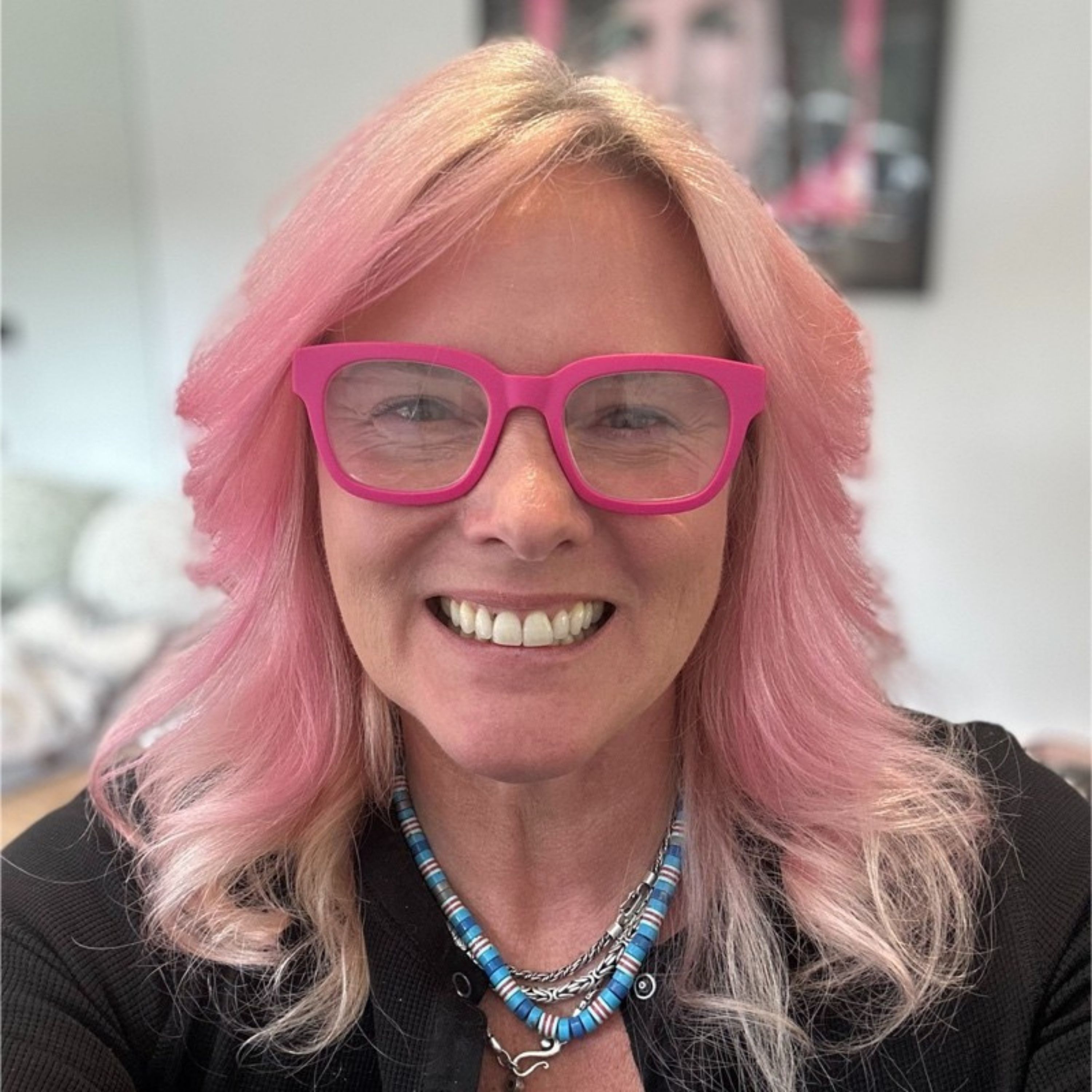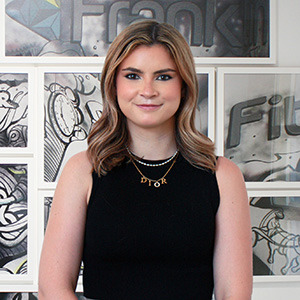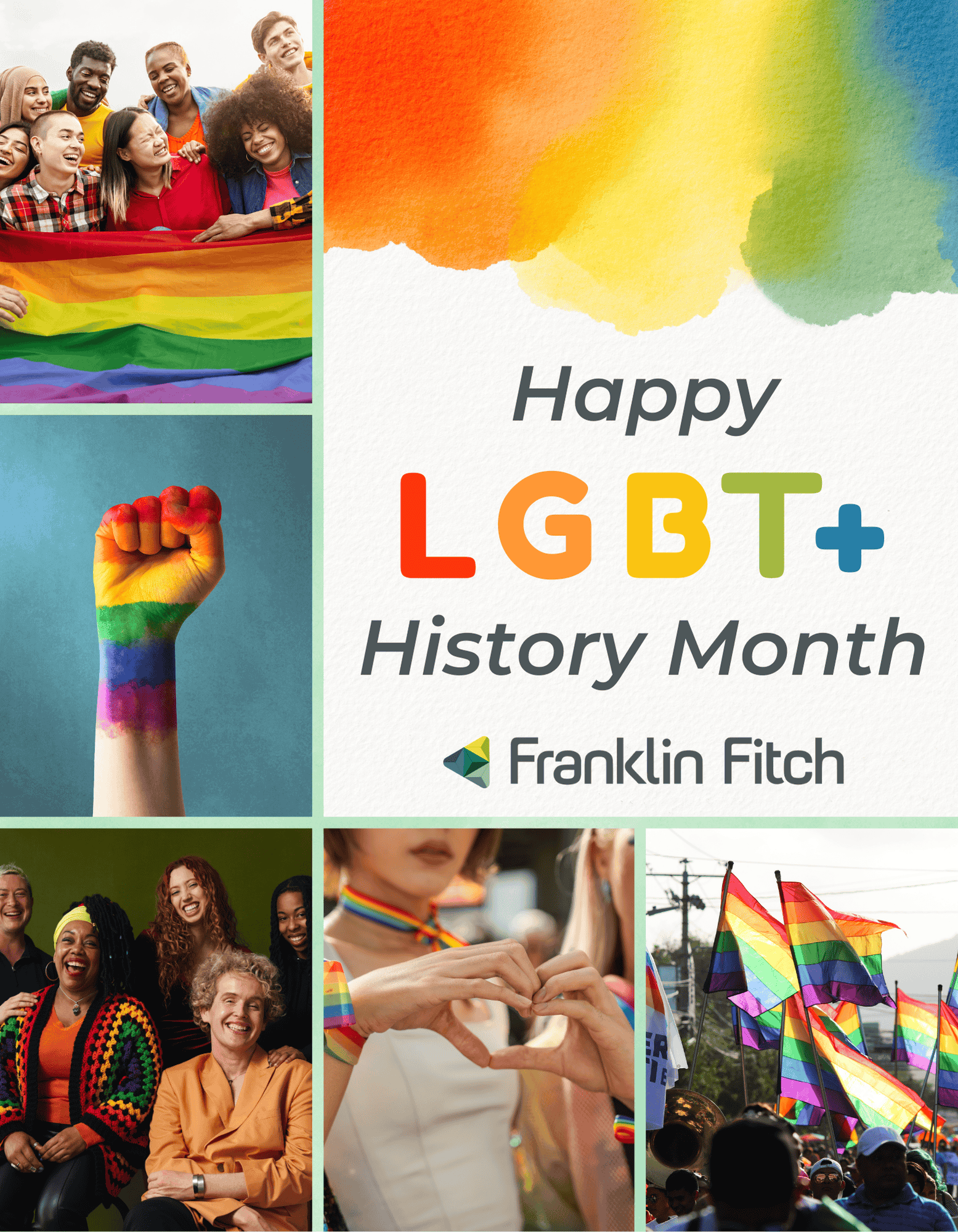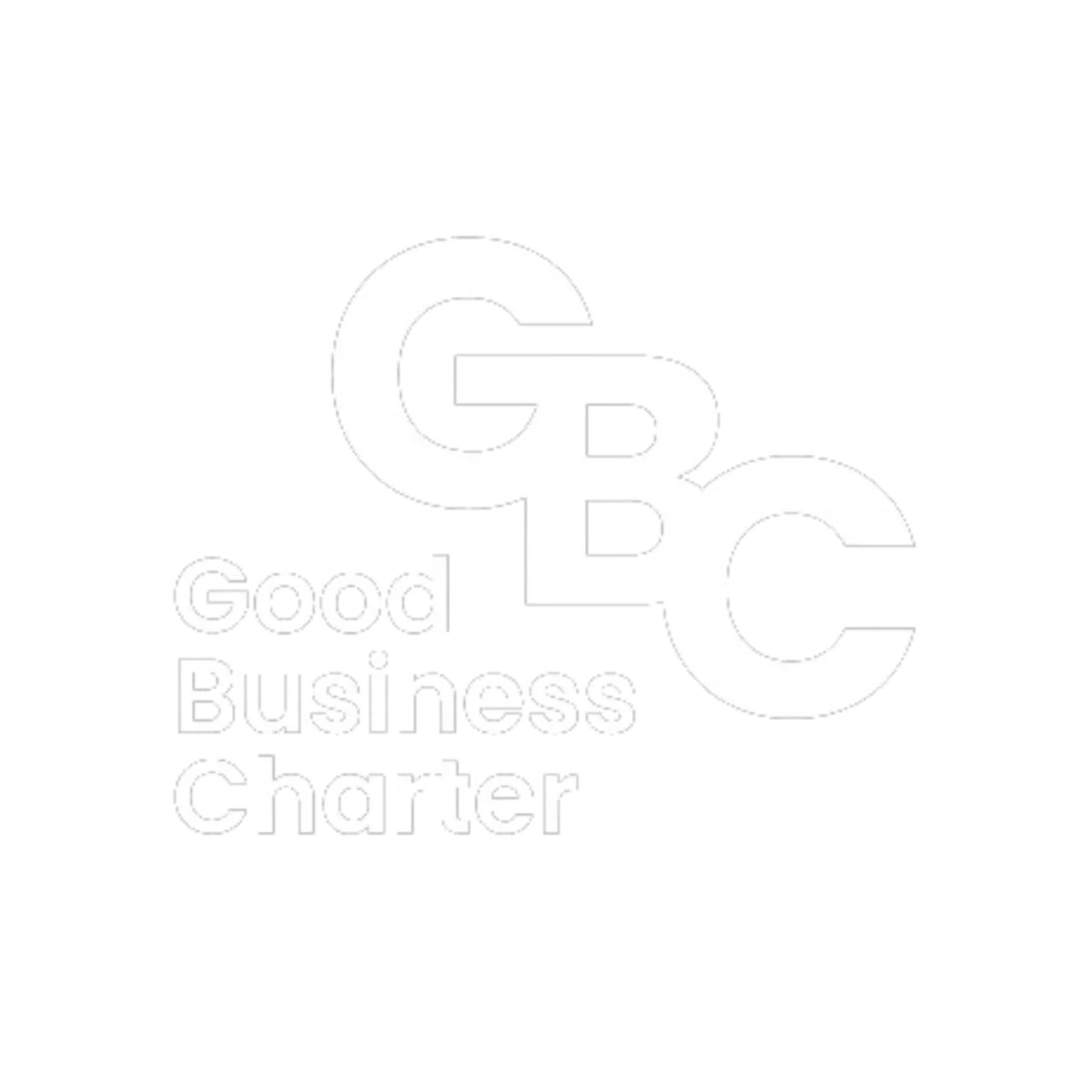
Tech Talent Spotlight: Juliette Denny
03 Feb, 20255 minutesThis month, we were fortunate enough to interview Juliette Denny, a visionary entrepreneur a...

This month, we were fortunate enough to interview Juliette Denny, a visionary entrepreneur and learning technology expert who is transforming education through innovative AI-powered solutions. With over 25 years of experience in the learning technology space and a master’s degree from Harvard University, Juliette has dedicated her career to making learning more engaging, personalised, and accessible.
As the founder of Growth Engineering and Iridescent Technology, she is pioneering using artificial intelligence, gamification, and cutting-edge learning strategies to revolutionise how people learn and develop skills. Her passion stems from a deeply personal mission to create learning experiences that adapt to individual neurodiversity needs, ensuring that education becomes a powerful tool for personal and professional growth.
Can you share the journey that led you to your current career path and brought you to where you are today?
My career path was down to a lot of luck. I had the luck of being born with dyslexia, meaning I didn’t have a great time at school, but I managed to cobble it together. I then went to university, where I worked in a bar, and it was in that bar I was approached by a guy who owned a software company. We are now rewinding 30 years; he said, “Juliette, you’re full of energy; why don’t you come to work for us in a marketing role? “I knew from then that I wanted to earn money and that sales was the way to do that. So, I started on the sales floor of a box software company when the internet hadn’t been invented, and mobile phones didn’t exist. So let me set the scene for you: it’s a big office with 60 men smoking; they each had a physical phone on either side of their ears, and the minute I walked in … I absolutely loved it.
I have to say that I was encapsulated by my drive and enthusiasm for sales. I felt like this was one of the greatest jobs ever. So, while in technical sales, I felt like I was edging into the tech industry, just not as much as I am now. Fast forward, my husband at the time got a place at Harvard Business School, causing us to make the massive move to America. While I was there, the internet was created, and I started working for Fairmount. It was one of those dot-com boomers, so it went boom and bust within 18 months, but it still hooked me. It was the concept of writing software code that you can change on demand and then sell multiple times to multiple companies – I was like, this is so cool and all I want to do. After completing my master’s at Harvard, I knew I had to set up a SaaS company, so I looked at things like Salesforce, which was kicking off. I knew what I wanted to do because all I had previously done was sell, so I started selling sales consultancy to high-tech VCs and banks. From this, I got the money to develop a kind of training diagnostic tool, which was the birth of the learning management system.
I started Growth Engineering 21 years ago, and that’s how I have gotten here today. I have a passion for edtech because, being dyslexic and having kids with ADHD, I feel really strongly that education should be fit for all, so that’s where education versus tech comes in.
You created Growth Engineering and Iridescent technology. How do these ventures reflect your personal philosophy on education?
Many people are locked in unfulfilling careers and are unfulfilled when they don’t have to be. If they have the opportunity to get an education shaped in the right way for their passions and interests, anything can be achieved. Humans are born to be curious, and they stay curious for their lives, so it’s not like people don’t have the capacity to learn; it’s the fact that we’re not educating them correctly. This is why I have always used gamification on our learning platforms. Zavmo AI is about personalisation, so it is about understanding what drives you and your ideal life design and mapping that to your GCSEs and A-levels. If you’re in the corporate sector, it will aid your vocational and professional qualifications in a context that’s meaningful to you.
I think the unique learning aspect excites people. Many people are afraid of AI and automation in the workplace, which is why we need to show them directly how upskilling in AI and automation can help them in their roles in a way that feels natural.
If people don’t care what they are learning about, the information doesn’t move from their short-term memory into their long-term memory, so it ends up being forgotten and a waste of money. As Zavmo maps everything to the national occupational standards and Ofqual, you could move from HR to finance because you already have your functional, foundational, and future skills mapped. If you’re looking to move, you’ll be able to easily transport and visualise the skills you’ve already got and understand where you need to upskill. It can also help you work on a professional qualification because your training can count towards a credit in government-recognized qualification.
In your upcoming book, The Learning Revolution, you explore the intersection of brain science, technology, and education. Can you share a key insight from your research that has fundamentally changed your approach to personalised learning?
I have previously touched on my key drivers, such as making education accessible, especially to those with diverse challenges. However, seeing large corporations respond to cutting-edge innovation has been interesting. Zamvo is brand new and has never been done before, which usually causes caution; however, the response has been quite the opposite.
People have been incredibly interested, and I think it is down to the value perception of learning and development. Learning and development need to be at the heart of every organisation, but it often gets neglected because it does not directly impact the top or the bottom line. However, suppose we can create that golden thread directly affecting the top and bottom line, which you can do with Zavmo. In that case, you can do all sorts of interesting data analysis, which shows how people are putting that knowledge into action. Suddenly, you’ve changed the L&D landscape.
As a new startup, I’ve been amazed at the amount of interest we have had. Clearly, there is a major problem in how organisations learn and develop. There are so many improvements that you could just spit ball and go. This is personalised; let’s give it a go and see if that is the key to unlocking those employees who struggle with traditional educational systems.
How does Zavmo AI cater specifically to neurodiverse learners or those with learning challenges like dyslexia?
Zavmo's technology works by being conversational. Zavmo will ask you specific questions to identify your preferred learning pattern. For example, if you’re dyslexic like I am, you will get double-line spacing, as dyslexia can cause words to crawl all over the page. You will also get words with five or more syllables phonetically spelt. Zavmo can also talk, so if you prefer to hear the lesson rather than read it, that is also a solution.
Another thing that dyslexics do is scaffold information in different creative ways. So, they might not understand entire sentences or paragraphs, but they are good at skipping words or certain areas while maintaining scaffolding. At the end of each learning, Zavmo recaps the scaffold information to ensure understanding while allowing them to get up to speed quickly.
For those with ADHD, it has to do with interactions, your typing and the use of the keyboard. If it has lost your attention, it will pause the learning as we need to ensure we have your attention to move back into concentration. It will ask questions to prompt you or ask if you are done for the day and want to pick up tomorrow instead. An exciting area that we are developing is consistent graphics. Our new model, DAVE (an acronym, not just a nice name), is a different kind of AI graphics engine that our MD Cosmo is working on.
You are known for integrating gamification into interactive learning platforms. How do you successfully maintain the balance between entertainment and achieving meaningful educational outcomes?
I think that’s an excellent point, and I believe that is the benefit of not having external funding because you’ve grown a company from not having any clients to having the most beautiful clients in the world. Companies aren’t going to do something unless it drives their business forward, so when we’ve got real cutting-edge cases that involve gamification, others want to get involved. The only reason we use gamification is to maximise learner engagement. It’s a way of letting users be creative, but ultimately, it doesn’t change how people think and feel about their role or business. The critical thing about gamification is that it’s all about how you can move up and down Bloom's Taxonomy, and it tells us how you get from learning to knowledge through to evaluation and analysis. So, we use gamification to move people up Bloom’s Taxonomy so they can be experts in their particular knowledge area.
What do you see as the biggest challenge in transitioning from a traditional one-size-fits-all education system to fully personalised AI-driven models?
I think people need to be bold. There are lots of bold people in the world already, so what I mean is that I would love to see the government take a more proactive role in understanding what it has already invested. I would love them to look at what they have invested in national occupational standards and Ofqual because it is fantastic for the taxpayer to know. My question to the government would be, given that you’ve got this infrastructure and, you know, AI technologies, is now the time to unleash that kind of efficiency within the educational sector? I know we can succeed in the private sector, but ultimately, my personal goal is to change the educational experience I had in my youth, and I know my kids experienced it as well. So, even if we are hugely successful in the private sector, it won’t make much of a difference because we need to get people in long-term unemployment and people with neurodiversity challenges locked in.
You’ve mentioned the need for entrepreneurs to go beyond wrapping existing large language models into simple applications. What advice would you give aspiring edtech entrepreneurs about creating impactful solutions?
I was fortunate because I started my career in sales, and I think when you start your career in sales, you are at the forefront of business development. Your organisation's four P’s are either working or they aren’t. The five forces are either crushing us or we’re crushing them, and when your organisation is crushing them, you’ve got a competitive advantage. So, I would say to any budding entrepreneur, you must get in front of your customers. You could have built the best product or have the best ideas, but none of that matters at the end of the day unless you’ve sold something. Until you’ve sold something, it’s just a hobby and an interest, not a business. A business is about attracting clients and converting them into paying clients; then, you can turn them into long-term business partners for your business. It’s not about the tech; its crux is the customers. I advise that if you hate sales, talking to customers, or discovering their problems and challenges, don’t be an entrepreneur. You could be the best technologist in the world, but you have to want to make the world a better place for customers by finding solutions to their needs in order to be a successful entrepreneur.
As technology evolves, how do you envision the role of human educators changing alongside AI-powered tools like Zavmo AI?
Despite my bad education, I did have some rays of sunshine. Those rays of sunshine can build you up and take you places you never thought before. For example, I did really badly at school; I got kicked out, which is how I eventually arrived at Cambridge Regional College doing a BTEC, which was 30 years ago, so back then, BTECs were more practical than theory-based. However, I flourished, and I pretty much got distinctions across the board. My course leader suggested that I push for university. I didn’t even have O-levels, so what university would want me? She found me a course called retail marketing. My BTEC was in retail, and she said it would be perfect for me. At the time, my academic confidence was low, and she came in, picked me up and showed me a different universe, one I couldn’t have imagined. However, the problem was that I found formal education extremely difficult; I ended up getting a 2:2, and it wasn’t until I was pushed into the world of work that I regained my confidence, which ultimately allowed me to do my postgrad at Harvard. Now I look at that little ray of sunshine because had I not taken the chance on this undergraduate course, I would never have been able to complete a postgraduate. So, I would love to think that Zavmo would be able to unleash everybody’s inner superhero, but the role of educators will always be there. Teachers could spend more time empowering and supporting their learners rather than just teaching them the same old stuff. I don’t know the future of teaching, but I hope it’s in and around inspiring young minds to develop curiosity. That’s where human experience will come into play, as I don’t think AI could hold the type of debates and dialogue. Having a 1-2-1 conversation with AI is an entirely different experience from sitting in a room and debating something with 20 other people. That is something that shouldn’t be replaced.
If you could have a 1-2-1 mentoring session with any tech leader, past or present, who would it be, and what would you ask them?
One of the people I admire the most in the entire universe is Oprah Winfrey. I think she’s got a very female approach, and that resonates with me. The idea of bringing spirituality and a sense of driving the greater purpose of good is important to me. I’m not religious, but I am awestruck because I find her message really applicable. I am always left wondering why we can just be more decent as human beings? Why can’t we be more thoughtful? Why can’t we be more open-hearted? I’ve always known that business is tricky and you can get completely screwed over; I have done this in the past; I always looked and thought the world can be a really horrible place. So, when I listen to her podcasts, she makes me think deeply that you should always walk into life with an open heart full of joy and love. Even a tough world will melt. So, I would pick her, granted I wouldn’t know what to say, but I’m sure all that would come out is, ‘OMG, you’re amazing!’
Do you have a final piece of advice for a young woman looking to start a career in tech?
It’s pretty basic, but don’t give up. Life is a marathon, not a sprint. Hold on to your golden why and what’s important to you, and make sure you keep working towards it. If you want to build something rock solid, it will take time, but it will happen. You never fail until you give up. Another cliché I would advise is to dream big when you’re young. You have the right to think and feel that your dreams can change the world. I feel really strongly about that. The world needs to evolve, wake up, and shake with new ideas. So, be bold, believe in yourself and keep working hard until you get the job done!
We want to thank Juliette once again for taking the time to share her incredible journey and insights. Her passion for edtech and improving the world is truly inspiring. We look forward to seeing what she conquers in the future.
If you would like to hear more from Juliette, follow her on LinkedIn.









